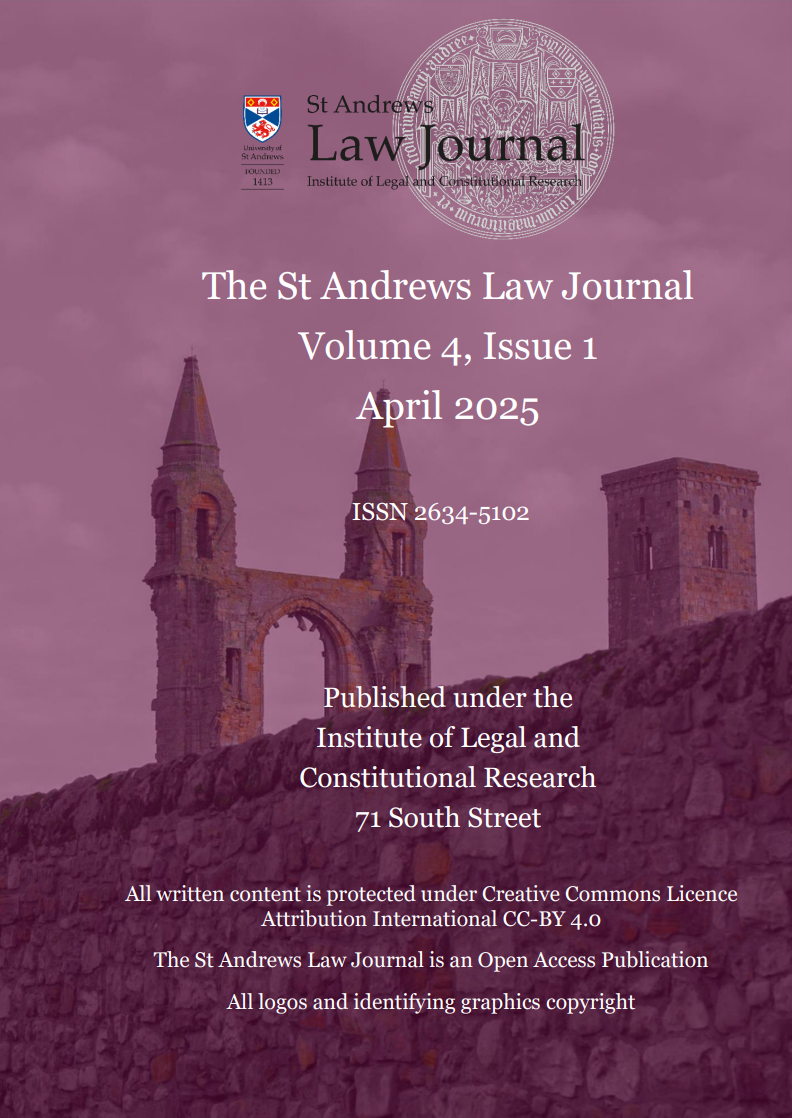Death, Blood, and Succession: Justinian’s Novel 158 and the relationship between inheritance law and imperial power in late Roman law
Main Article Content
Abstract
Romanist historians have consistently argued that Justinian’s revision to the agnatic line of succession in Novel 118 signifies an increased recognition of the blood principle. This paper takes a corrective approach to the place of blood in late Roman inheritance patterns and argues that the exchange of agnatic for general blood principle was not a policy change insofar that the imperial state had always dealt with a kind of blood. Thus, the change in succession law from agnatic line to general blood line should be viewed as a development within the principle of blood. Within this paper, ‘blood’ and ‘blood relationship’ refer to those in kinship, for example, mothers, fathers, children and so on. I will use this definition to explain how blood connections were endowed with proprietorial value through the imperial state’s developments in inheritance law. Power refers to imperial state’s ability to influence family hierarchy and Empire. Thus, the concept of blood was malleable because it’s cultural value and it legal value could be altered through imperial power. The approach of this paper is guided by David Miller and Peter Sarris’ annotated translations of Justinian’s Novels which treats the sources as self-conscious literary constructions. The analysis emphasises how juristic science itself functioned as part of imperial power. Ultimately, this paper argues that Justinian's Novel 158 exemplifies how the imperial state manipulated legal definitions of 'blood' to consolidate its control over family structures and inheritance.
Article Details

This work is licensed under a Creative Commons Attribution 4.0 International License.
Authors who publish with this journal agree to the following terms:
- Authors retain copyright and grant the journal right of first publication with the work simultaneously licensed under a Creative Commons Attribution License that allows others to share the work with an acknowledgement of the work's authorship and initial publication in this journal.
- Authors are able to enter into separate, additional contractual arrangements for the non-exclusive distribution of the journal's published version of the work (e.g., post it to an institutional repository or publish it in a book), with an acknowledgement of its initial publication in this journal.
- Authors are permitted and encouraged to post their work online (e.g., in institutional repositories or on their website) prior to and during the submission process, as it can lead to productive exchanges, as well as earlier and greater citation of published work (See The Effect of Open Access).

